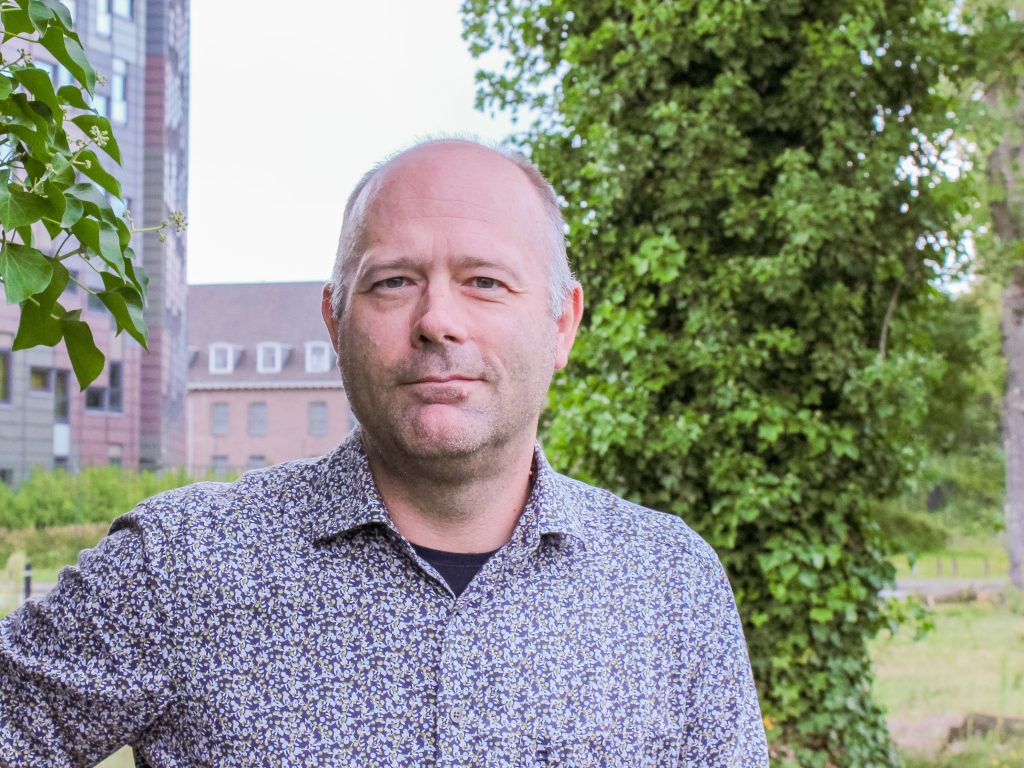
In 2050, the Netherlands must be entirely circular. “If we want to achieve that goal, we must compel the petrochemical industry to engage with it,” says Martijn Zieverink, lecturer in Biobased Transitions. “We can’t rely solely on innovative, young companies to accomplish it.”
Humanity faces significant challenges, with the transition from a fossil to a carbon-free economy perhaps being the greatest. In the coming years, we must bid farewell to all processes emitting CO2. By 2050, this means most products can only be made from biobased raw materials. These are of course natural resources that are grown, harvested, used, and reused responsibly. And if we use fuel, it must be biofuel made from plant material or waste. Only then can we prevent the disasters caused by climate change.
In the Netherlands, young innovative companies conceive and sell various clever, green solutions to make our country circular. Think of building materials from seaweed, insulation from straw, or bioplastics from corn or sugarcane. A significant amount of government funding, including through the National Growth Fund, goes into these ventures. Through this fund, the government plans to invest at least 102 million euros (rising to 336 million euros) over the coming years in developing the Netherlands as a “development hub and knowledge exporter” of biobased technologies.
However… these efforts are drops on a hot plate. The impact of these young, innovative companies is vastly overestimated. If I take a look at past green government initiatives, only a small fraction of what they promise is actually delivered. The government’s focus on these companies distracts from the real problem: the petrochemical industry.
Shell Moerdijk for instance, they produce chemical products from petroleum. They produce exactly the thing we need to move away from. Moreover, it consumes a tremendous amount of energy. Sixteen percent of the total energy consumption in the province of North Brabant is attributed to Shell Moerdijk alone. If we want to transition this company to biomass, we’d need more biomass than all of Brabant produces annually. We simply don’t have enough Brabant for Shell.
And yes, perhaps there’s a smart, young, innovative company with the solution. But to scale this company to the size of Shell Moerdijk, will take decades. Shell and other petrochemical companies are slow to change. The pace of their transformation lags far behind what’s necessary. And yet, Moerdijk holds the real volumes and transformative power.
Ideally, petrochemical companies would recognize the need for change and show moral leadership. But this requires abandoning a profit model that harms our planet and atmosphere. It means prioritizing value creation for the planet over value creation for their shareholders. And that’s a tough message.
Consumers alone can’t drive this change. The problem is too complex, too incomprehensible, and – above all – not visible enough.
Consumers of the petrochemical industry can demand changes, but even that is a slow process.
Those who can enact change are The Hague and Brussels. Politicians have levers to pull. Simple regulations could have significant effects. The government could, for example, mandate that producers always incorporate renewable resources into materials. They could also require that a product’s environmental impact be factored into its price, making polluting products much more expensive than clean ones. These are two concrete examples that would force the petrochemical industry to move.
Yes, it’s good that young, innovative companies are developing and bringing green alternatives to market. I myself work at such a company for a reason. It’s good that time, attention, and (government) money are directed towards this. But it would be even better if the government compelled the petrochemical industry to move faster than it currently does. Only then can we truly become circular.
